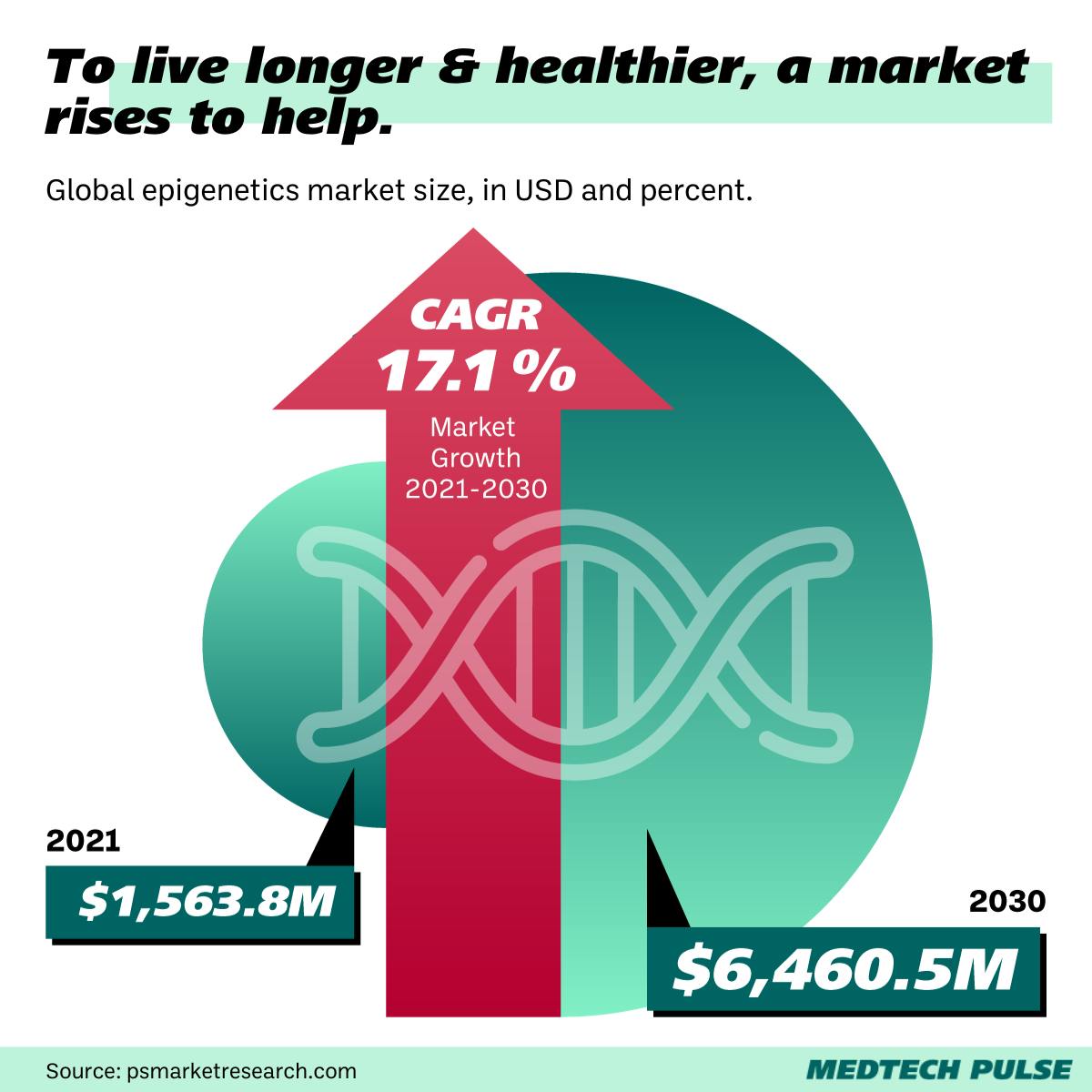Epigenetic testing will revolutionize healthcare
How can we slow or reverse the aging clock in humans? One fascinating way is by looking at genes to predict what disease a patient is likely to face later in life. To create the opportunity for humans to actively make changes in lifestyle, diet, and supplementation to prevent or mitigate a disease—while there is still time for change and prevention. But how can we know? A method that is currently pushed by the fast developments in AI, data analysis, and new technologies shows promising potential: Epigenetic testing.
Science also learns from the past to change the future. Diving into the topic of epigenetic testing in today’s edition of MedTech Pulse, we take a loop into COVID-19. Caused by a global pandemic, the COVID diagnostics market boomed—a market that grew and developed at an impressive speed to make testing accessible. And now, after three years of the pandemic, the COVID-19 testing bubble finally seems ready to burst. The market is expected to decrease as testing demand continues to fall.

Many companies that built up a high revenue business on COVID-19 testing may soon be falling stars in the industry that’s moving away from the dark days of the virus. But let’s also look at a potential bright side. There is a field that has high growth potential and which will benefit from the medtech development the COVID-19 testing ushered in, especially the normalization of testing at home: COVID rapid antigen testing familiarized many more consumers with DTC self-diagnostic products.
A field that could reap the benefits of this familiarity is epigenetic testing. It is a relatively new field that holds great promise for understanding how our genes are expressed and how they interact with the environment. In my opinion, epigenetic testing is becoming increasingly important and can make a difference in long-term human health. With COVID testing having created more accessibility and awareness of home testing during the pandemic, at-home epigenetic testing could be next.

But why does this matter? Increasing research and new approaches in the field of genes can help identify potential health risks for humans. Epigenetic testing reveals how environmental exposure and lifestyle are changing the epigenome. The epigenome regulates which genes are switched on and off. You can also check your epigenetic clock which looks at the methylation of your DNA to calculate your biological age, which then can be compared to your chronological age. The genes don’t change and stay the same from the time you are born until you die. It is the epigenome that changes different gene expressions. By using gene sequencing you can identify certain genetic risk factors for diseases or cancer which have been associated with the respective illness.
The results of epigenetic testing can lead to patients taking action in changing their lifestyles for better health. They learn how to influence their diet and how to reduce environmental risks. Choices like diet, exercise, smoking, alcohol consumption have significant impacts on health and longevity, but exposure to stress, trauma, and pollution all contribute to your health outcomes, too. So, it’s safe to assume that a tool that helps people understand how to optimize these factors in their lives could open a door to preventing chronic disease, prolong lives, and lead to a healthier overall society. Not only the patient, but also the overburdened health system would benefit.
It is important to also highlight the challenge this field might face: ensuring that methods like epigenetic testing are used in ways that benefit human beings while protecting individuals’ data. And there are some further concerns this growing market has to face with the increasing demand of home testing—improving the results accuracy by securing the quality of the DNA sample provided by the individual. Plus, providing access to these tests and results is one thing. Presenting results in a way that minimizes the risk of misinterpretation (and thus unnecessary anxiety) on the patient’s side has to be the goal. If we keep these priorities in mind, I am sure: Epigenetic testing has the potential to revolutionize healthcare and our understanding of gene-environment interactions.
